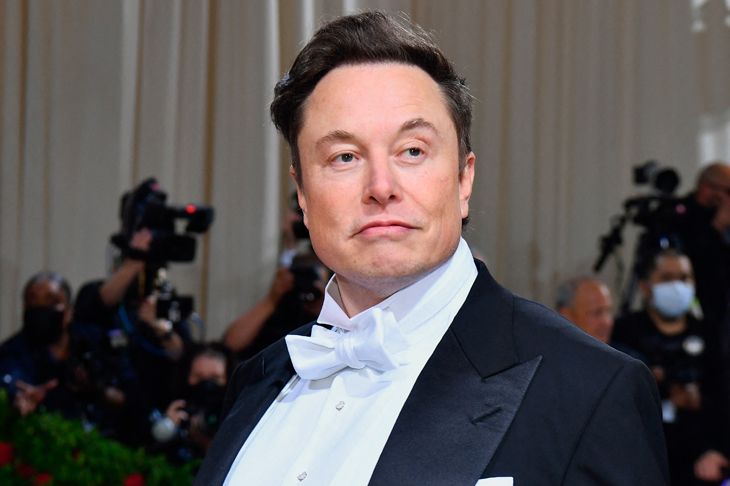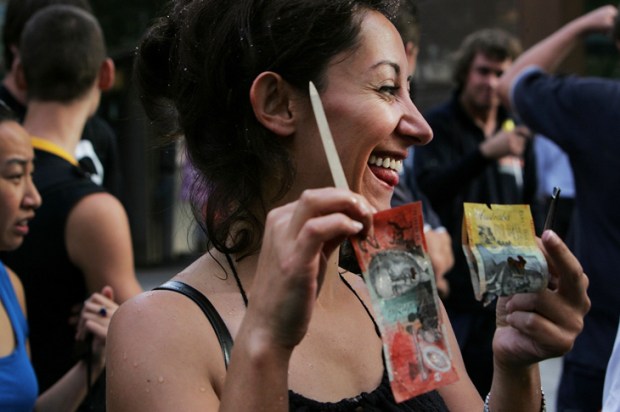You may have missed the news that at the end of April the US Department of Homeland Security announced the establishment of a Disinformation Governance Board. You probably, however, heard the news of Elon Musk’s takeover of Twitter.
Musk is a free speech absolutist and, seeing Twitter as the ‘digital public square’, wants to restore its political neutrality. This has caused something of a moral panic among those sufferers of, as Musk put it, the ‘woke mind virus’. On 5 May, the New York Times published a smear piece under the banner ‘In Musk’s Past, a South Africa Rife with Misinformation and White Privilege’.
The announcement of the Disinformation Governance Board followed the announcement of Musk’s takeover by a few days, and I found myself wondering if there is any connection. But then I checked myself, fearing that I have become a conspiracy theorist –like the people who got booted off Twitter last year for propagating the Hunter Biden laptop story, the lab-leak theory about Covid 19, or the idea that vaccinated people could infect unvaccinated people with the virus (I mean Covid, not the woke mind one – sadly, there is no known vaccination against that as yet). If I do not stop my errant thoughts, I might end up on the DGB’s watchlist! After all, as Orwell’s 1984 said, if you want to keep a secret, you must also hide it from yourself.
Anyway, what could possibly go wrong with a government department deciding what is and isn’t correct information? I trust governments to do this, because they are powerful and omniscient, act for the greater good and always tell the truth.
There is scant detail about the DGB and its powers. We do know it will be targetting disinformation from human traffickers and Russia, which sounds reasonable. However, it will be headed up by ‘disinformation researcher’ Nina Jankowitz, who said of Musk’s Twitter bid: ‘I shudder to think about if free speech absolutists were taking over more platforms’, called the Hunter Biden laptop story a ‘Trump campaign product’ and asserted that ‘critical race theory has become one of those hot button issues that the Republicans and other disinfomers…have seized on’. Totally impartisan!
Since Trump’s reign, and further impelled by the pandemic, there has been a burgeoning of self-appointed conspiracy theory and disinformation activists like Jankowitz. These people may do good work. But there are problems.
The soldiers of this new army tend to have a worldview that imbues them with the moral certitude that they are the sole arbiters of truth and acceptable thinking. While insisting that science is racist (but the public health response to the pandemic requires you to follow it anyway) and men can get pregnant (but commenting on abortion is not a man’s right), they believe that their dissenters must be hapless victims of disinformation and conspiracy theories who cannot be trusted to come to the correct conclusion. And woe betide the heretics, for the army of believers will unleash their pile-on powers with a fury that would make the God of Sodom and Gomorrah blush.
Another problem is that, not only do the thought vigilantes not confront the conspiracies in their own cohort, some of them partake in them. British-Lebanese conflict journalist Oz Katerji has noted that, through an anti-imperialism under which progressives see the West as the root of all evil, ‘Conspiracism and war crimes denial has now deeply embedded itself in the Western Left’. As examples, he cites Noam Chomsky and John Pilger, hugely influential figures on the left who have both denied the Bosnian genocide at Sebrenica and that Bashar al-Assad used chemical weapons against his own people, despite incontrovertible evidence. Journalist George Monbiot has said, ‘Part of the problem is that a kind of cult has developed around Noam Chomsky and John Pilger, which cannot believe they could ever be wrong, and produces ever more elaborate conspiracy theories to justify their mistakes.’
In her recent article, Izabella Tabarovsky explores ‘the ideological roots of Soviet-style conspiracist anti-Zionist rhetoric that is taking over the American liberal mainstream’, being the ‘deadly tropes of the anti-Semitic theories of the Protocols of the Elders of Zion and Nazi theory’. Starting in 1967, a global USSR propaganda campaign infused into the hard-Left what Steve Cohen, the British author, called ‘transcendental’ anti-Zionism – an anti-Zionism that ‘has no necessary relationship to anything a real Zionist, or real Jew is doing. It exists in the air quite apart from material reality – except for the reality it creates for itself.’
While disinformation and conspiracy theories are nothing new (an early use of the printing press was a publication about witches that incited thousands of murders), undoubtedly social media has supercharged this phenomenon. Something does need to be done about it. But increasing censorship only risks exacerbating the problems it purports to fix, which is to ensure the truth prevails. As writer Jonathan Rauch notes, objectivity is ‘a function of viewpoint multiplicity and diversity’ by which we challenge our biases; without it ‘fact and faith become indistinguishable’.
If the aim is indeed getting to the truth and not narrative domination, there are much better solutions – such as making algorithms open source and introducing user authentication to get rid of bots, measures that Musk has championed to increase transparency and decrease manipulation. Beyond the architecture of social media, teaching children digital literacy and critical thinking is crucial.
But these remedies will not suffice. Because fundamentally, the ailment is a symptom of an increasingly polarised, fragmented West where trust in institutions has atrophied, there is no meta-narrative, and people are increasingly disaffected and disconnected. Enlightenment principles that prize objective knowledge, science, reason, free speech and universal truth have eroded. In their place, a post-modernist ideology has seeped out from academia and been mainstreamed, holding that objective knowledge is impossible, and knowledge is a construct of power and intrinsically political. There is no truth, only a ‘hegemonic discourse’. That is why people struggle to know what to believe, and don’t trust those who claim the authority to tell us.
As Hannah Arendt wrote: ‘The ideal subject of totalitarian rule is not the convinced Nazi or the convinced Communist, but people for whom the distinction between fact and fiction (ie., the reality of experience) and the distinction between true and false (ie., the standards of thought) no longer exist.’
Got something to add? Join the discussion and comment below.
Get 10 issues for just $10
Subscribe to The Spectator Australia today for the next 10 magazine issues, plus full online access, for just $10.
You might disagree with half of it, but you’ll enjoy reading all of it. Try your first month for free, then just $2 a week for the remainder of your first year.














Comments
Don't miss out
Join the conversation with other Spectator Australia readers. Subscribe to leave a comment.
SUBSCRIBEAlready a subscriber? Log in